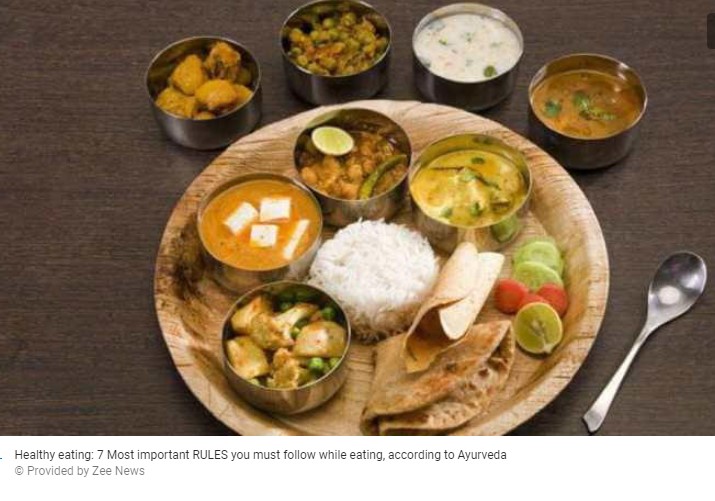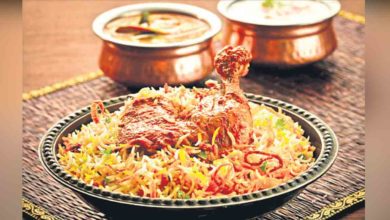Healthy eating: 7 Most important RULES you must follow while eating, according to Ayurveda
All living things get their proper nutrition from food. When consumed sensibly, it functions as an elixir and fuel for people, but when consumed improperly, it can even serve as poison. Therefore, it’s essential to know what foods your body responds to in order to stay healthy.
In Ayurveda, eating is viewed as the primary component of health. A person’s body type will determine what kind of diet they should follow. According to Ayurveda, illnesses result from an imbalance of the components in the body. Vata, Pitta, and Kapha are the three doshas that are taken into account by this traditional medicinal approach. It’s crucial to maintain these three doshas in a balanced state in the body by eating a healthy, nutritious diet.
Here are the seven rules you cannot miss to have a healthy life:
1. Nature (Prakriti)
Some foods are by their very nature light. For instance, urad dal is thick and difficult to digest, whereas moong dal is light and quick to digest. So, while eating, keep the food’s heaviness or lightness in mind.
2. Karana (Sanskar)
The natural attributes of the food we may be making can be enhanced by sanskar or the technique we cook. Food prepared on gas, stove, and oven, for instance, all taste differently because they acquire fire or heat in different ways.
3. Combination (Sanyog)
Mix two or more foods before eating. There are two forms of this: a combination of a material that is good for the body and does not harm its tissues and a mixture of these harmful and risky compounds for the body Such a restricted diet shouldn’t be taken. Foods like a milkshake, banana shake, and mango shake are ‘incomplete food combinations’ which can damage the internal organ, and produce toxins, which can further cause health problems.
4. Amount (Quantity)/Matra
The digestive fire determines how much food to eat. It is advised that you consume slightly less food than you feel like eating. On a full stomach, avoid eating.
5. Country (Location)
Don’t rely too heavily on prepared foods. When preparing meals, fresh and high-quality grains should be utilised. Foods like wheat, rice, and pulses ought to be of high quality, and vegetables ought to be freshly harvested.
6. Kaal (Time)
A timely meal is important. Only when your previous meal has been properly digested should you eat again. Eat when you’re hungry, not because your taste buds are encouraging you to do so.
7. Utilization institution (rules compliance)
While eating, one should refrain from talking, laughing, watching TV, reading the newspaper, and using the phone. Additionally, avoid eating food too quickly, too excessively, or too slowly.
(Disclaimer: This article is based on general information and does not substitute for an expert’s advice. Zee News does not confirm this.)








